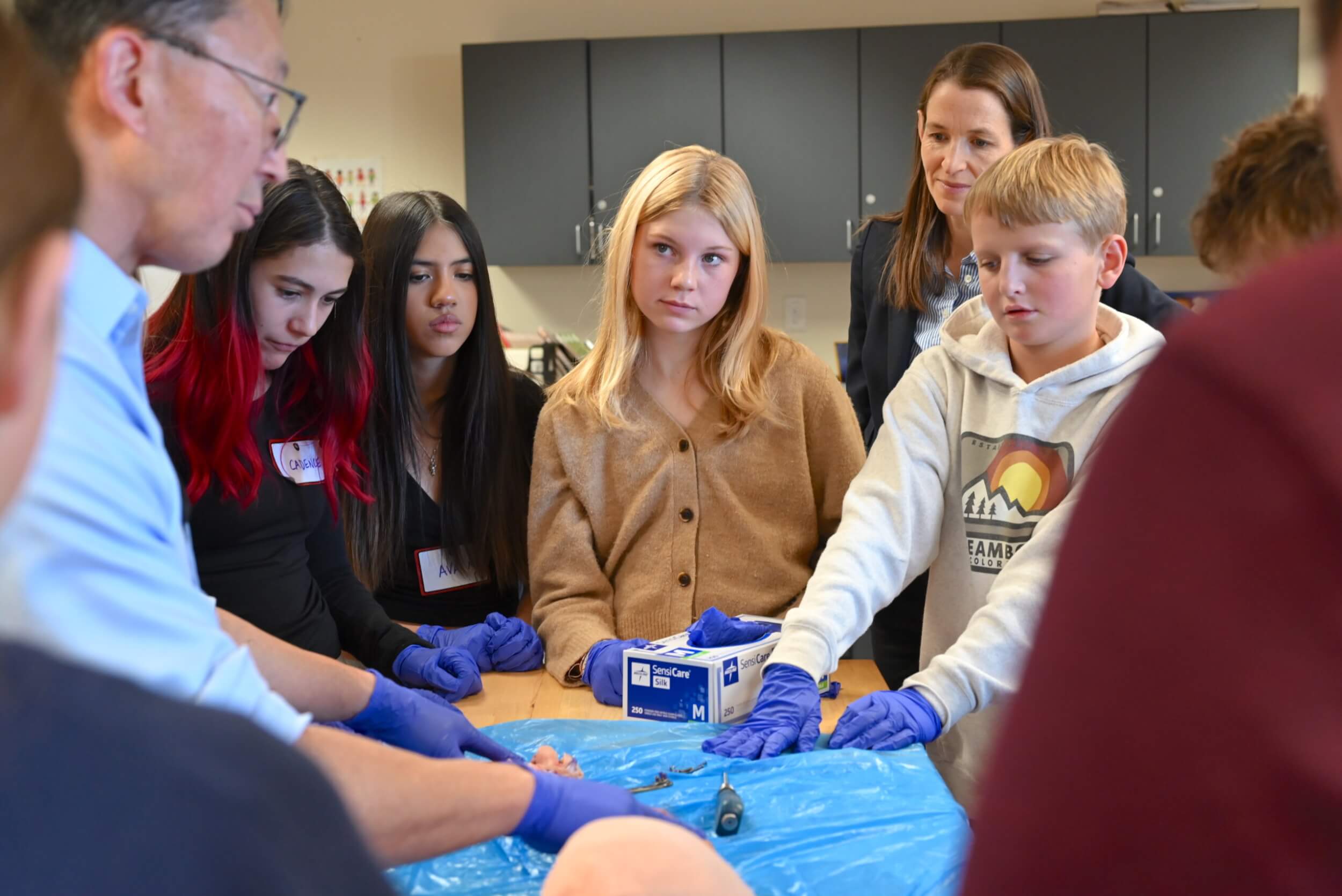Seventh Grade scientists at Colorado Academy spend the year studying biology and health, the cell, and biomedical engineering. While in part an investigation of traditional topics in the life sciences, the Seventh Grade science curriculum also challenges students to consider approaches to solving problems in science and medicine, and how engineering and design, data analysis and representation, and science ethics play a role in comprehending the living world.
“Through a focus on humans as subjects of investigation, students develop an understanding of diverse approaches to problem solving and the impacts science has on society,” explains Middle School science teacher Erin Galvin. “Our units of inquiry encourage Seventh Graders to develop their research, analysis, and scientific writing skills, as well as push their curiosity, creativity, and critical thinking.”
Hands-on learning is central throughout the Seventh Grade science year, and in January, students had the opportunity to learn directly from experts in the field during a day-long Symposium—a series of workshops in which guest science and medical professionals discussed their work and invited students to take part in demonstrations.
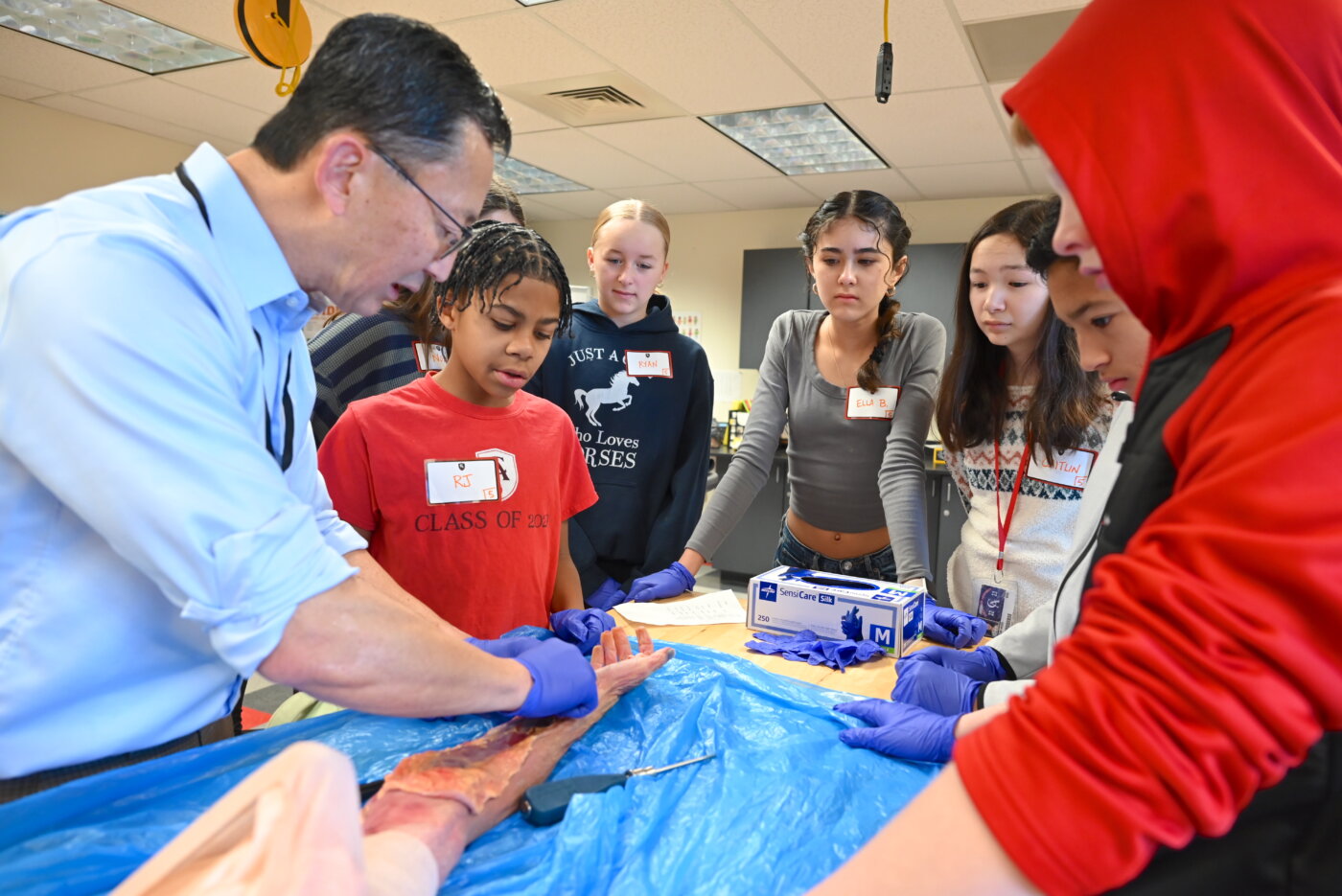
The special event was the kickoff to a major project for the Seventh Graders: the Health Design Challenge, during which student groups are assigned a hypothetical patient with a health challenge and, with each participant assuming a different team role, work collaboratively to research and design possible solutions for their patient. The students build a prototype of a treatment, design a clinical trial to test their concept, create a wellness plan for nutrition and exercise needs, and produce an informational resource for their patients.
“At the same time that we are learning how the body works,” science teacher Kathleen Kirkman notes, “we are also exploring the ethics around how we learn about the body or test new treatments. The design challenge builds empathy for people with physical limitations as the students design devices that may be life-altering.”
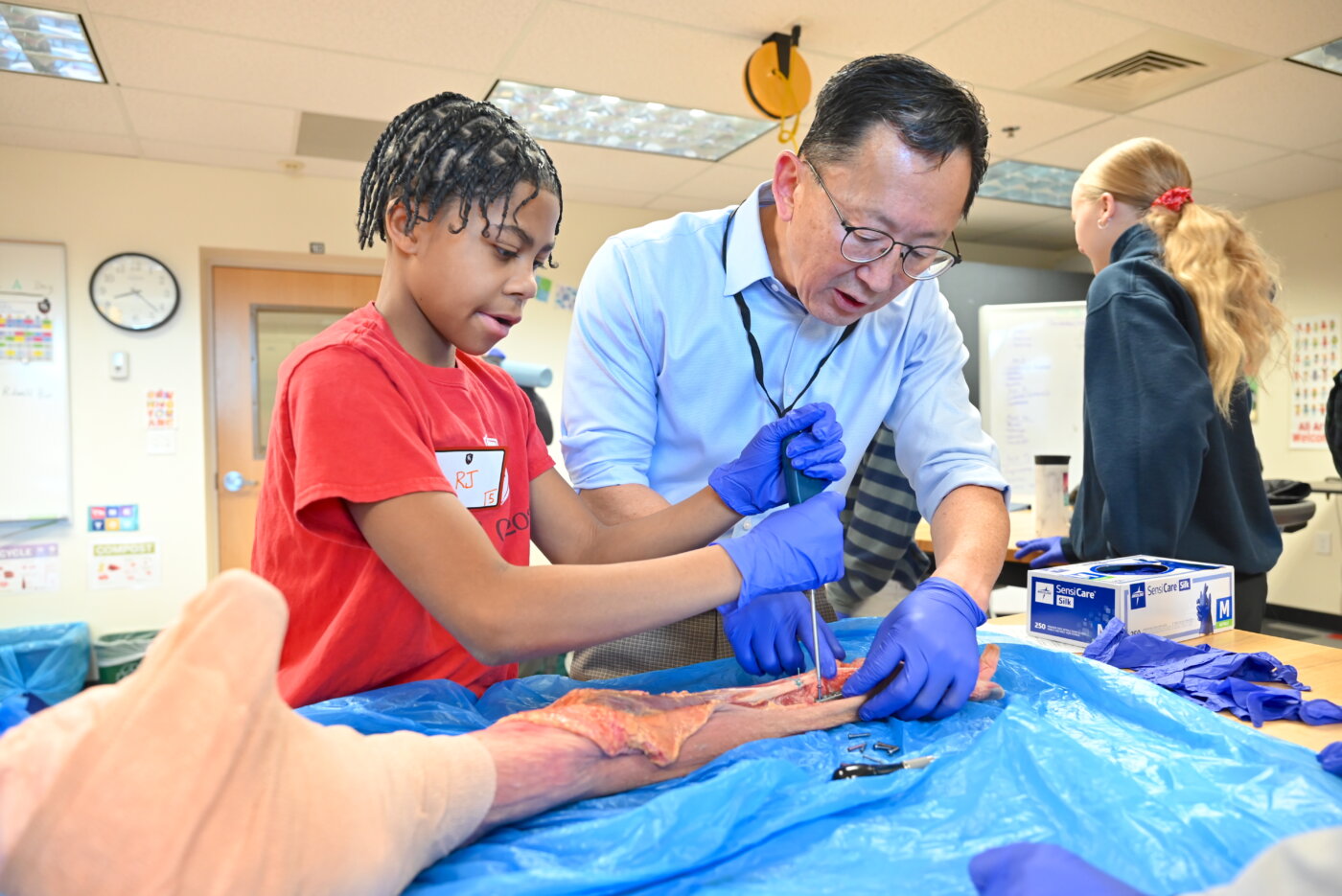
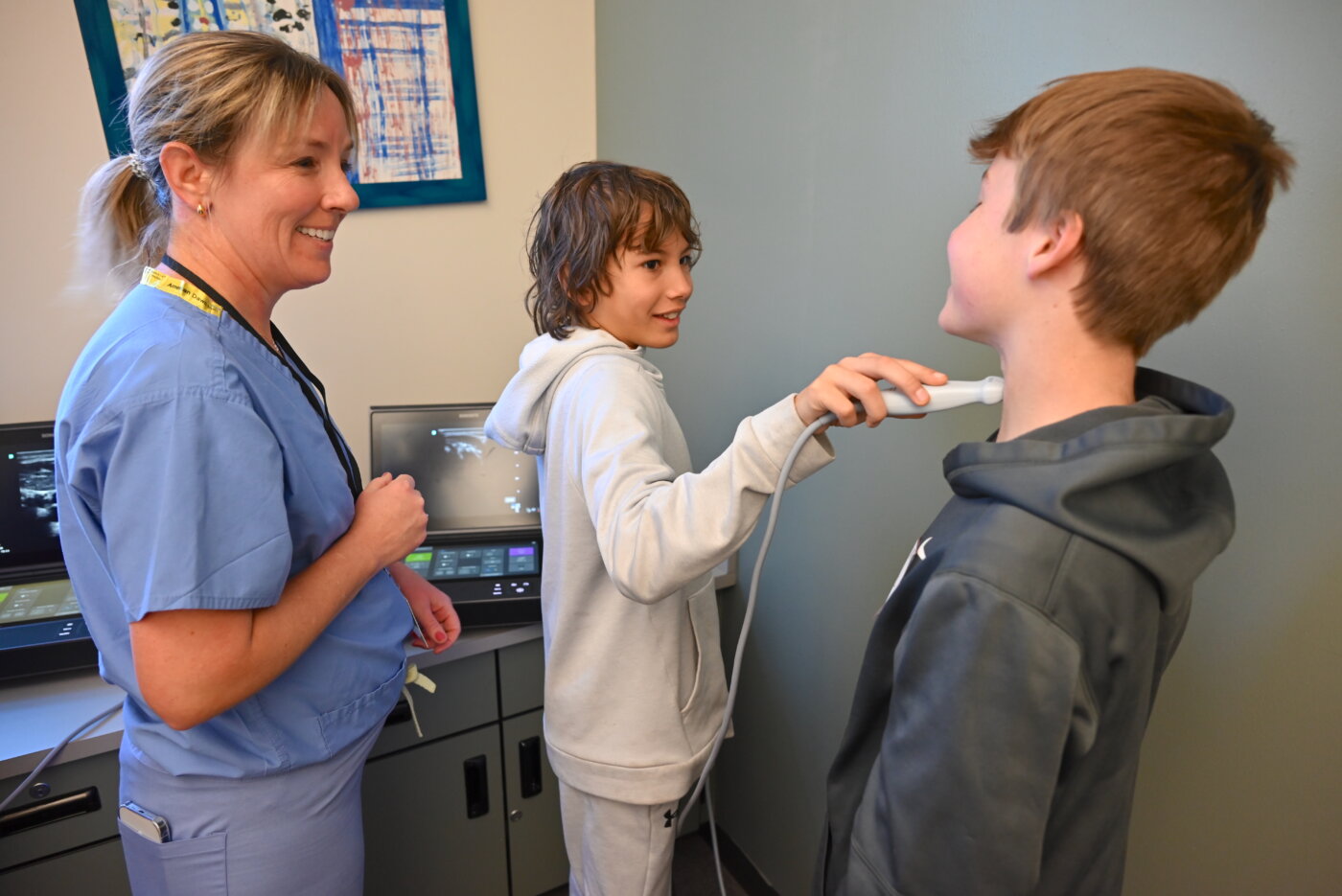
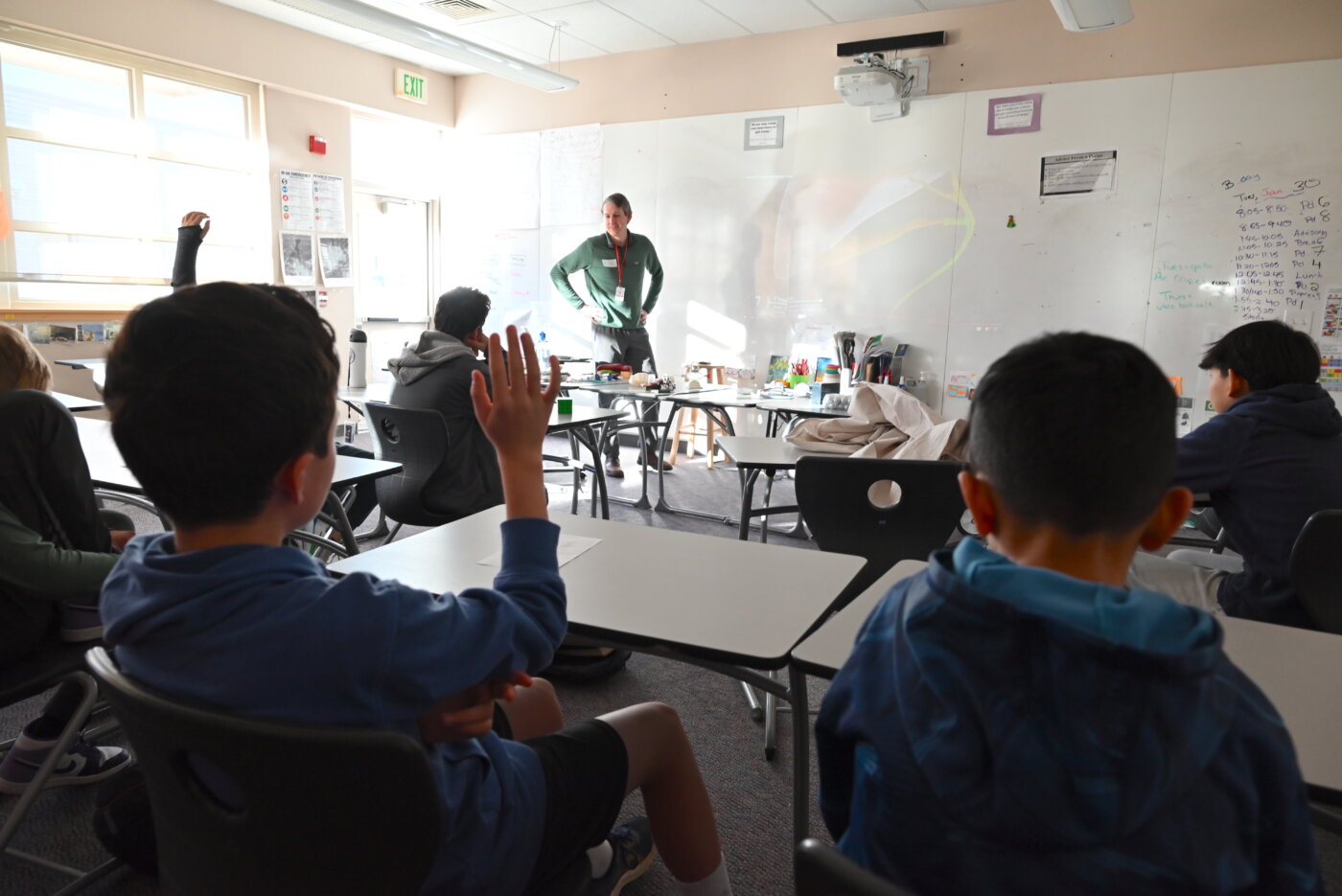
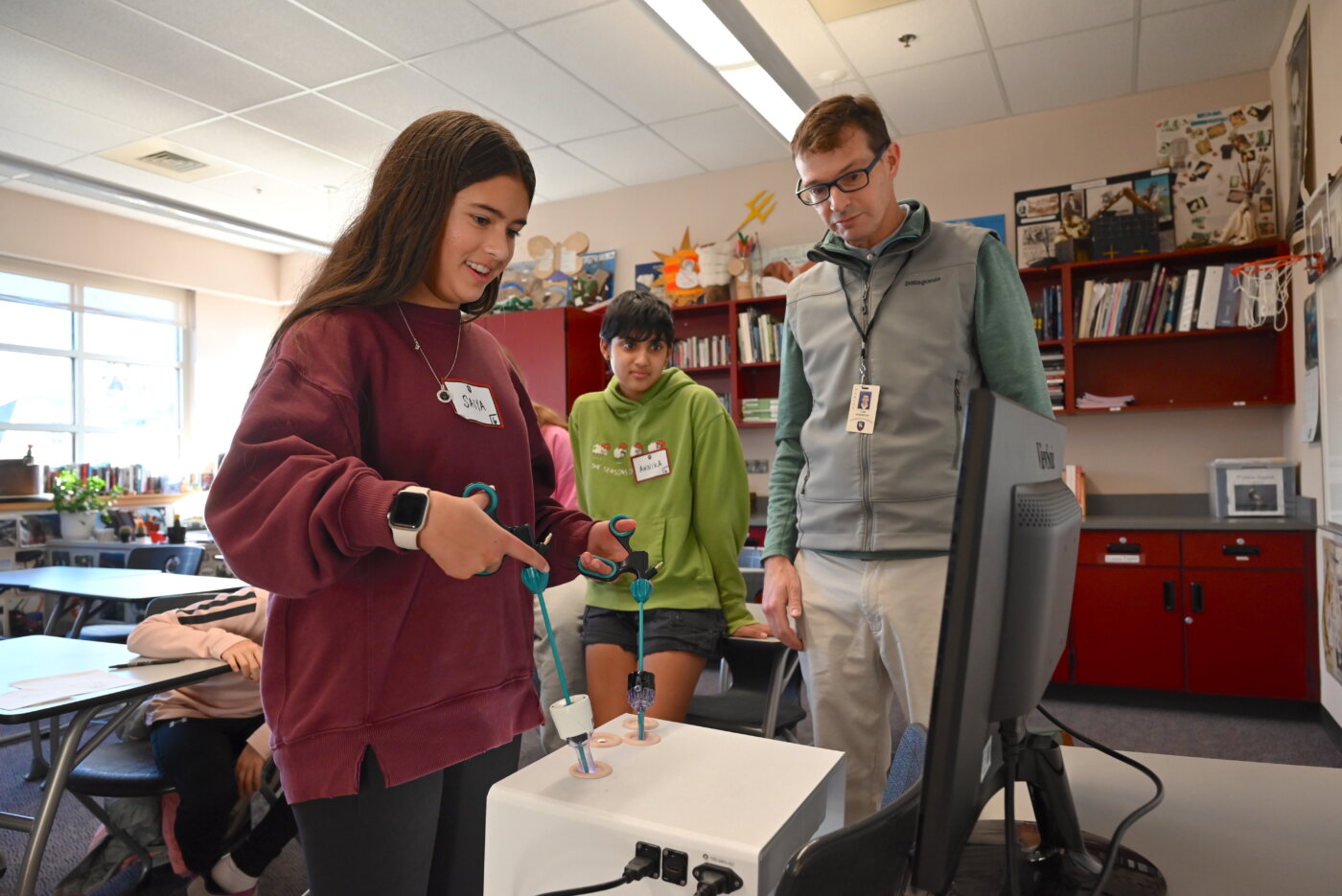
In the course of the Symposium, the Seventh Graders met with Dr. In Sok Yi, a CA parent and orthopedic surgeon who is a Clinical Assistant Professor within the Orthopaedics Department of the University of Colorado Health Sciences Center. With Yi’s guidance, students dissected and examined a preserved human arm and hand, affording them a vivid understanding of the intricate mechanisms and structures that enable the simplest of movements.
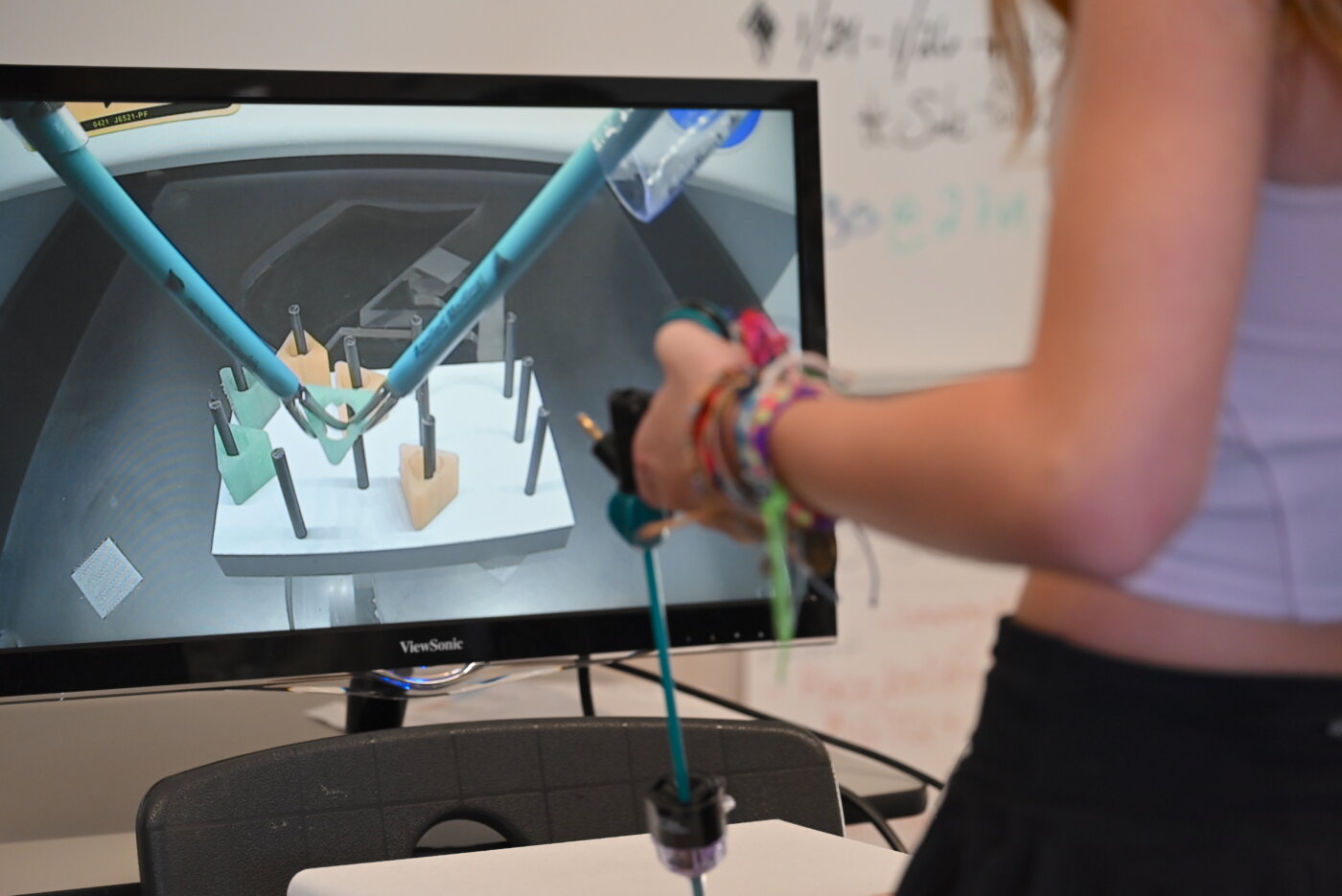
They also spent time with another CA parent, Dr. Prairie Robinson, an anesthesiologist who gave students a crash course in intubation and the use of an ultrasound machine. Nearby, the scientists trained with Robinson’s spouse, laparoscopic surgeon Dr. Tom Robinson. Using a state-of-the-art training device with a video display similar to one real surgeons might use for the minimally invasive technique, the students had the opportunity to practice handling surgical tools inserted into narrow tubes, or trochars, in a simulator. Inside, their goal was to manipulate the pieces of a 3D puzzle with both speed and precision.
Seventh Graders were intrigued to hear about the work of biomedical engineer and startup founder Mike Mulanix, whose company develops innovative technologies that can make surgeries for conditions such as gallstones safer and simpler. Just down the hall, they learned about the immune and digestive systems from CA parents Dr. Esra Nutku-Bilir, an immunologist, and Dr. Bahri Bilir, a gastroenterologist.
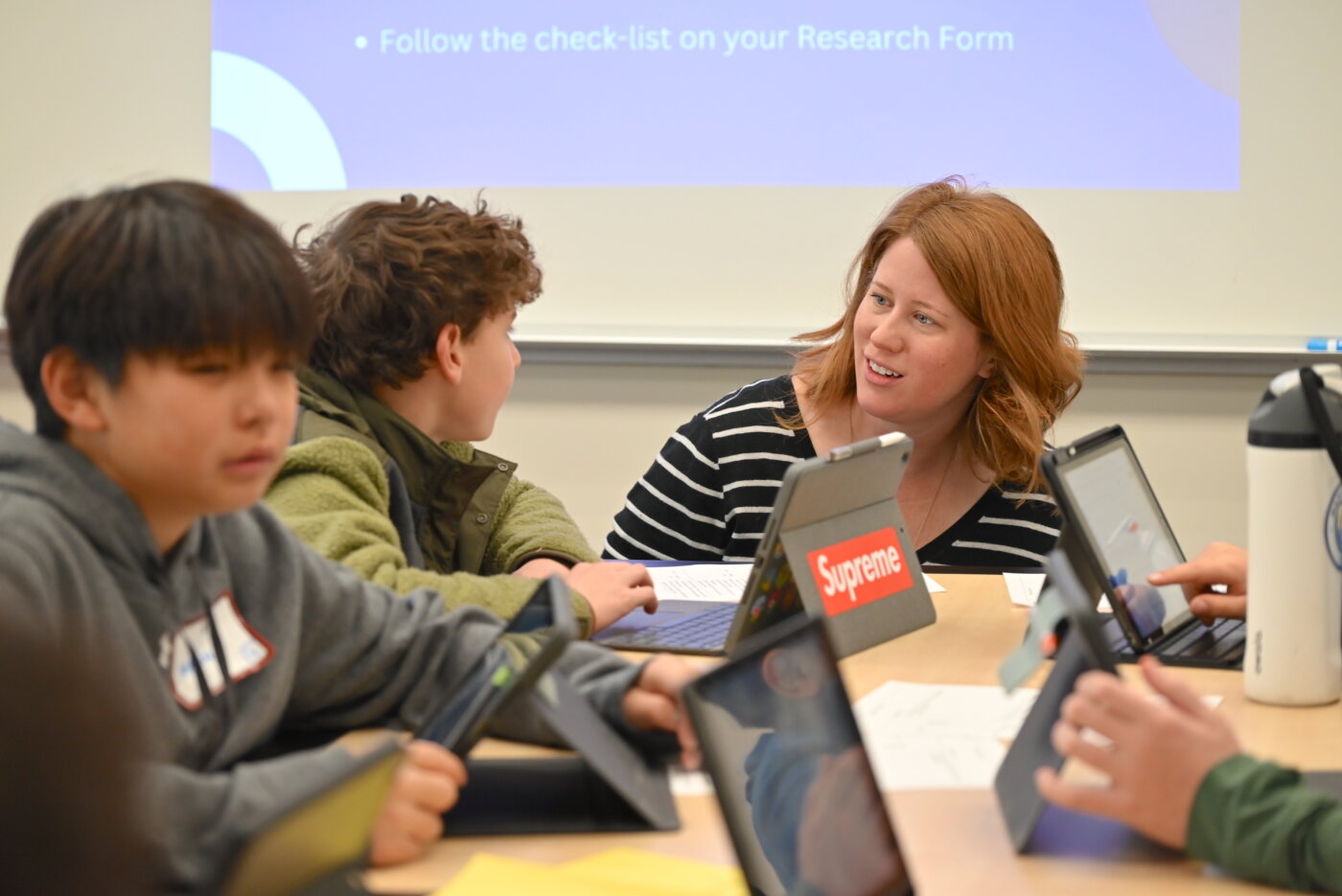
Finally, students took the short walk over to Raether Library’s North Classroom, where they worked with Middle School librarian Mary Leyva to begin research on the medical issue they had been assigned in the Health Design Challenge. Leyva walked the researchers through a typical scientific database entry and demonstrated how to assemble notes and cite sources for their project.
Students took their group roles seriously as they scoured the Gale In Context: Science database—made available through CA’s Library—for information and ideas: The Advocacy Group Leader was charged with researching treatments and terminology on the way to producing a patient fact sheet; the Nutritionist had to design a wellness plan; the Biomedical Engineer was responsible for prototyping a device, medicine, or treatment for the assigned health challenge; and the Clinical Trial Coordinator would map out a timeline for testing the group’s results.
“The Symposium helped exemplify the practical application of the Seventh Grade topics we teach—body systems, biomedical engineering, and eventually our cell biology unit,” says Galvin. “It was exciting to see our students gain a firsthand understanding of the interconnectedness of science, medicine, and technology by engaging with professionals in these fields.”
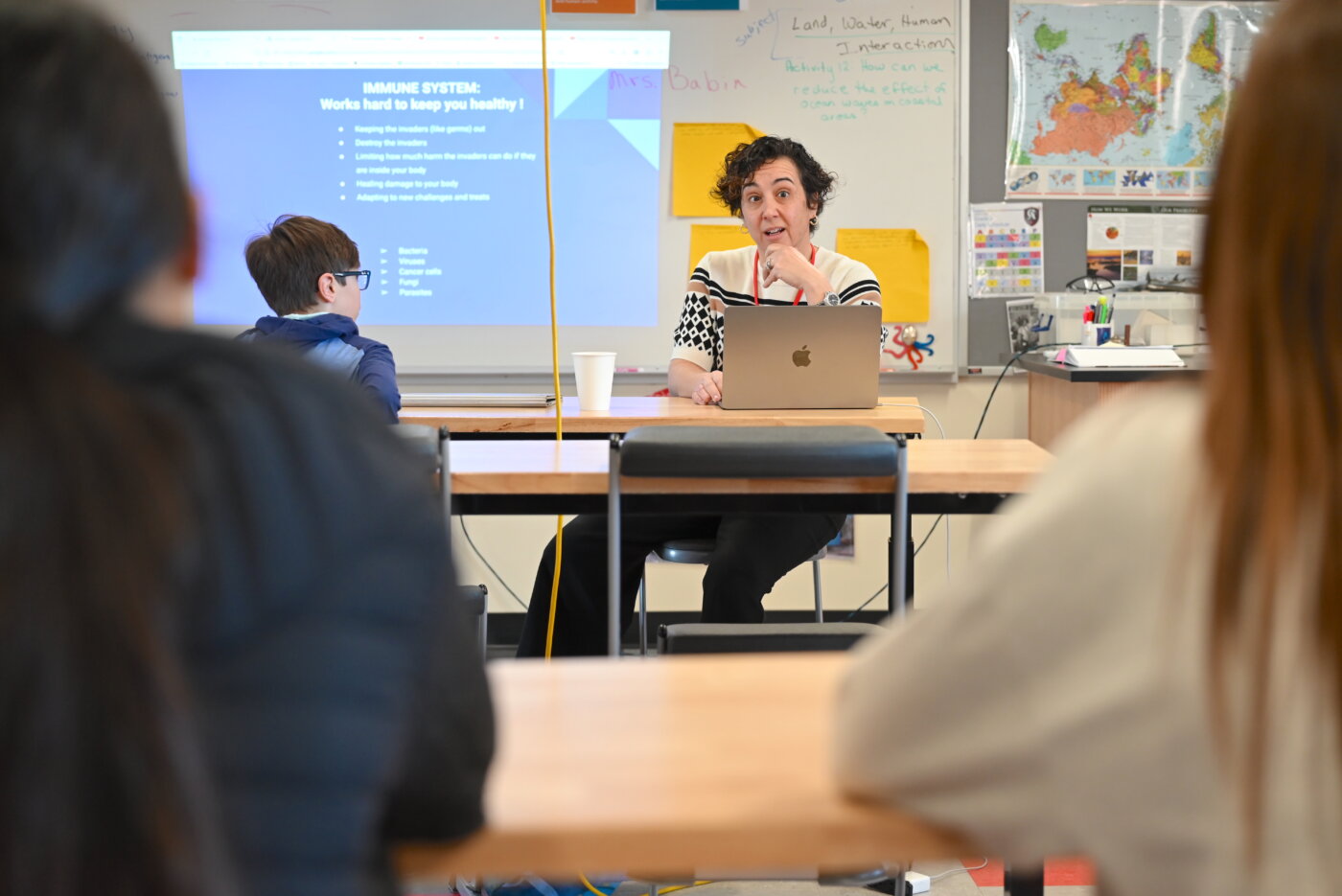
Adds Kirkman, “In Seventh Grade science, we work to create scientific thinkers who can use reasoning to support evidence-based claims, while also considering the real-life and human implications of the science we are studying.”
At a time when pseudo-scientific ideas and outright fraud are becoming more commonplace through social media and other channels, CA’s insistence on developing skepticism, critical-thinking skills, and empathy in students ensures they gain the critical ability to make informed decisions about their health, the environment, and other issues facing society.
